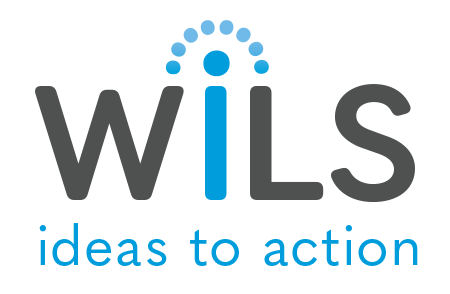
WiLS is proud to announce our first cohort of Data Classroom graduates! The cohort members spent the last six months engaged in library-centric data and research training and recently completed their final showcase to highlight their work. We were so impressed, we wanted to share it with our members, too!
The Data Classroom experience is designed to provide librarians with a largely asynchronous opportunity to increase their data skills and confidence, while also having the chance to network with professionals across the state engaged in similar learning. The experience begins with foundational training on research and data, and offers participants the opportunity to develop a real-life research question that they use to frame their learning over the course of the experience. Data Classroom then walks participants through the basics of research design, data collection, analysis, and visualization in relation to their selected research question. Each participant is able to curate the experience based on their own capacity to engage in as much or as little “real world” learning as they wish. As part of the cohort, monthly virtual meetings are held for synchronous learning and connecting, paired with asynchronous learning via webinars, a toolkit, and a lively message board.
The first Data Classroom cohort included five participants, with four engaging in a real-world research project over the course of the experience. Their projects are timely for many library workers; we hope hearing about their work will be as inspiring to you as it was to us!
Erica Brewster is a Data and Technology Services Consultant for the Wisconsin Valley Library Service (WVLS). Erica’s research during Data Classroom focused on adding to her data skill set through the lens of meeting her system libraries’ data needs. Through that lens, Erica took some of her data analysis and visualization skills to her system’s annual statistics booklet to create a dynamic and informative two-page infographic. The infographic highlighted some key metrics about WVLS libraries, as well as shared a compelling story about the relationship between inflation and funding and expenditures. Her work showed the power of playing with existing data through a data visualization lens to tell a concise, curated story about a library system and its members’ impacts and challenges.
Joleen Sterk hails from Menomonie Public Library where she works as the Director. For her Data Classroom project, Joleen developed a creative, qualitative space use study using observation as her data collection approach. In partnership with her library staff, she took a floor plan map of the library and developed a set of “codes” for different activities people could be engaged in such as reading, using a public computer, or a parent interacting with a child. Library staff then observed during different, specified times over a two-week period and used the codes on the map to show where people were in the library and what they were engaged in. The observational data was then turned into a spreadsheet where we played with different analysis approaches to highlight findings ranging from an affirmation that their open hours appear to be serving the community well to tracking a daily flow of who tends to use the library when and what type of activities they are engaged in. It was super cool to see the trends!
Monica LaVold is the director at the Friday Memorial Library in New Richmond. Her research question focused on genrefication processes. As part of Data Classroom, she developed a questionnaire to gather information from libraries who had gone through a genrefication process. This produced ten “case studies” from the Wisconsin library community highlighting different approaches to genrefying library collections. We then did some qualitative analysis for themes. Highlights included a diversity in approaches, ranging from libraries doing heavy external research to others utilizing more intuitive librarian subject matter expertise to guide the process. Processes ranged from a single month-long process to a years-long endeavor with costs being largely hard to pin down due to the heavy use of library staff time to carry out the process. Building on this endeavor, Monica and her team developed an Adult Fiction Genrefication process as a “how-to” guide.
Michelle Johnson comes from Hammond Community Library where she serves as the library’s director. Michelle also looked at genrefication and started the actual process of it at her library. Through this lens, she was focused more on the outcomes and evaluation of the impact of this change on different metrics such as circulation and community member feedback. While Monica and Michelle’s projects were not designed in tandem, they naturally built on one another in showing how, after determining a process for a significant change like genrefying a part of a library collection, it’s also valuable to plan for what data you need to look at in the future to evaluate the change.
—
Are you looking for ways to increase your data skills and confidence? Are you unsure what to do with all that data you’ve collected at your library? Are you looking for strategies to create compelling data-informed stories about your library for different stakeholders? We are currently putting together our second cohort of Data Classroom, and we would love to have you! For more information, please reach out to Kim at kim@wils.org.



